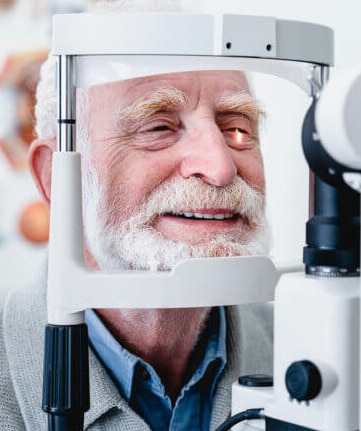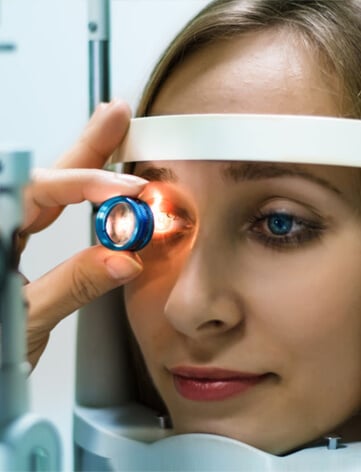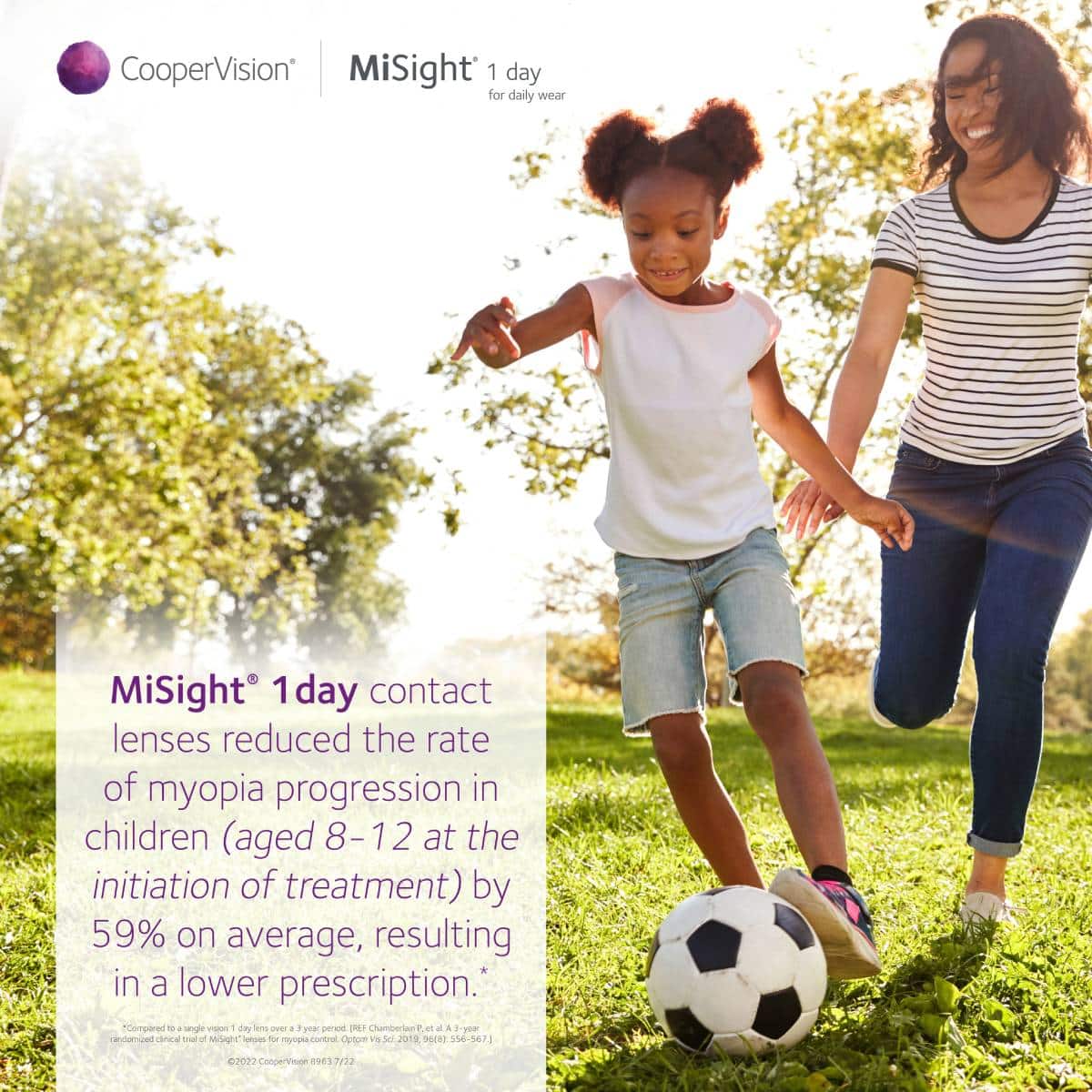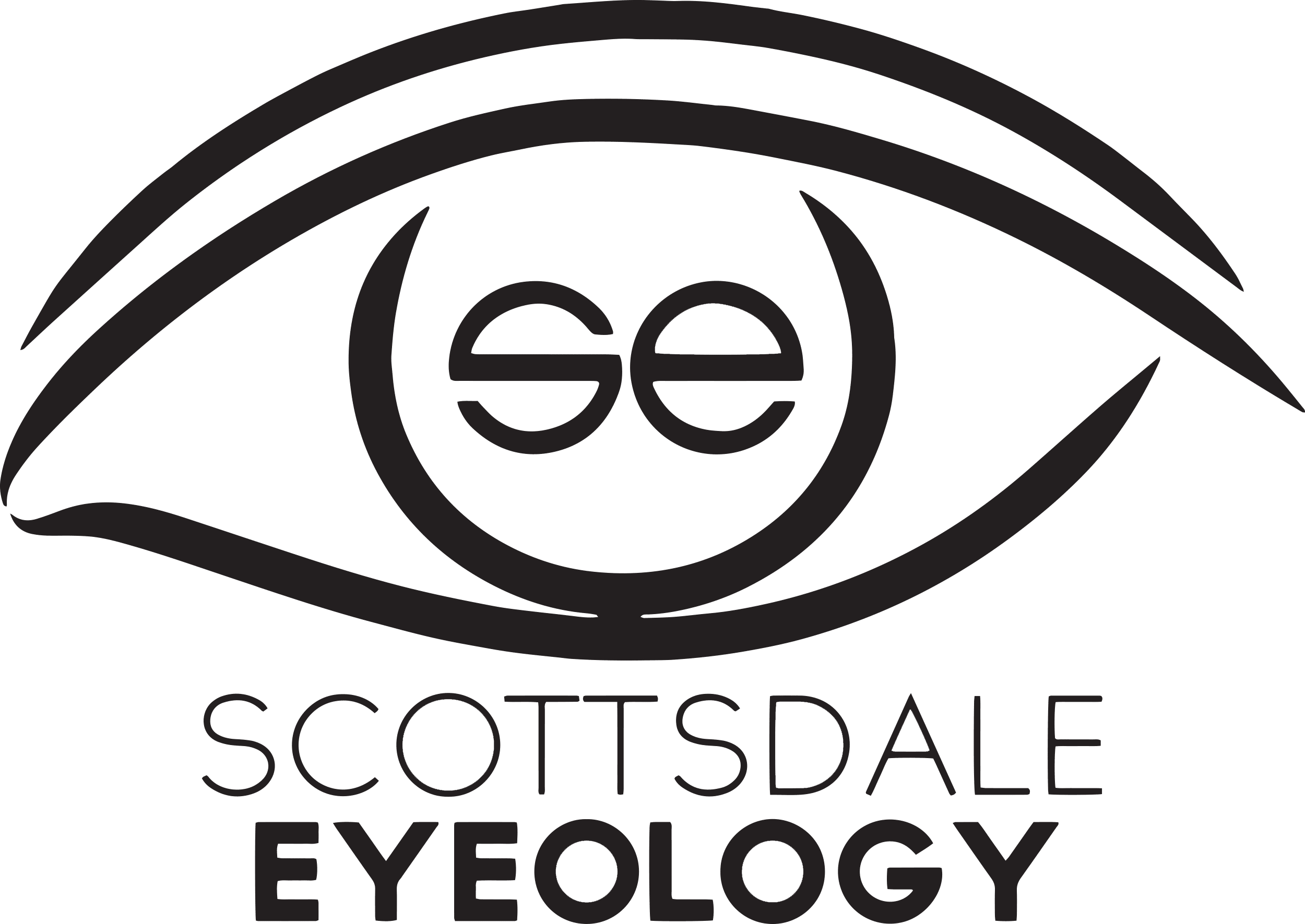
Glaucoma
Glaucoma is a group of eye diseases that cause damage to the optic nerve which can progress to complete vision loss. The optic nerve is like an extension cord from our eye to our brain. The most common type of glaucoma is open-angle glaucoma. In early stages, there are no visual symptoms. The condition begins by affecting peripheral vision which leads to tunnel vision and in advance stages, complete vision loss. Angle-closure glaucoma is characterized by pain, nausea, and sudden vision loss. Although rare, it is a medical emergency. Since there is no cure for glaucoma, early detection is essential to slow progression. Age, race, family, and medical history are all factors that can increase your chances of glaucoma. However, anyone can develop it. Treatment can include pressure reducing eye drops, medications, and surgery.
Schedule your comprehensive eye examination which includes an evaluation for glaucoma at (480) 806-2181 or Book Online.

Cataracts
Cataracts are clouding of the natural lens of the eye. Cataracts cause our vision to become blurry and increase light and glare sensitivity. Most cataracts are age-related and develop slowly over time. Some medications and systemic conditions such as diabetes can increase your risk of early cataracts. After a cataract develops, visual clarity with glasses or contact lenses is limited. Fortunately, when your cataracts have progressed to affect your vision cataract surgery can be performed. Your vision can be restored because the cloudy lens is replaced with an artificial implant. Cataract surgery is the most common surgical procedure performed. To learn more about cataracts and cataract surgery call us at (480) 806-2181.

Diabetic eye examination
Diabetes is a chronic condition which affects the body’s ability to regulate blood sugar. Too much sugar in your blood stream can cause a blockage in the small blood vessels of your retina. As a result, the eye forms new blood vessels to nourish the retina. Unfortunately, the blood vessels do not develop adequately which cause them to leak and swell. If untreated, this can cause vision loss. Most eye diseases caused by diabetes affect your eye slowly and therefore, may not have noticeable visual symptoms. It is extremely important to have a diabetic eye examination annually. Your eye doctor can use instruments to look at the health of your retina. Diabetes can increase your risk of glaucoma, cataracts, and age-related macular degeneration. When diagnosed early, diabetic retinopathy can be effectively managed to prevent vision loss.
Diabetic retinopathy is the leading cause of preventable vision loss. If you have questions about how diabetes affects your eyes or about a diabetic eye exam, call our office to speak to an eye care specialist at (480) 806-2181.

Macular Degeneration
Macular degeneration is also called age-related macular degeneration (AMD). It is a condition that causes the center of your vision to blur while the side or peripheral vision remains unaffected. Your central vision is the most detailed vision and is what we use for reading, driving, watching TV, and recognizing people’s faces. This sharp clear vision becomes distorted due to changes in the macula.
There are two types of macular degeneration; wet and dry. Dry is the most common and less vision threatening type. Wet AMD is caused by abnormal blood vessels that leak fluid or blood into the macula. While wet AMD is less common, it is also the most vision threatening. Macular degeneration is the leading cause of blindness in North America in adults over the age of 55.
Early stages of the disease have minimal symptoms which commonly go unnoticed. It is important to have your eye examined annually. If you have questions about macular degeneration or need to book your eye examination call our office at (480) 806-2181 or Book Online.

Retinal detachment
A retinal detachment occurs when your retina pulls away from the back of the eye, which can cause permanent vision loss. A retinal detachment can occur with no warning signs. At other times, the warning signs include sudden onset/shower of floaters, flashes of light, or a curtain or shadow over your vision. This is a medical emergency. If you are experiencing these signs or symptoms, contact our office immediately.
You are at a higher risk of a retinal detachment if you have had a serious eye or head injury, have a high nearsighted glasses prescription, have a family member who had a retinal detachment, or have had a tear or detachment in your other eye. Your eye doctor can use instruments to evaluate your retina after dilating your eyes using eye drops in order to determine the health of your retina. We also have retinal imaging capability (Optomap) using the latest technology to capture significant retinal findings.
A comprehensive eye exam will help to detect any eye problems at early stages when they are most treatable. Contact our office to schedule yours today.

Myopia management
Have you noticed your child squinting to see things far away, complaining of headaches, sitting too close to the TV, or holding a tablet or book too close to their eyes?
These are just a few of the common signs that your child’s vision has worsened. More than 40% of American’s have myopia/nearsightedness. 1 in 4 children are at risk for myopia even if neither parent has myopia. 80% of learning is visual so lets set our children up for success.
Our Doctors are certified providers of MiSight 1® day Contact Lenses. This contact lens not only fits the lifestyle needs of our children but also is the only FDA approved treatment to reduce the progression of myopia.
To learn more call our office at (480) 806-2181. Make the first step and schedule an appointment.

Vuity™ Eye Drop Treatment
At Scottsdale Eyeology, our team is well-versed in the innovative treatments available today. If you are having difficulty seeing your up-close, there may be a solution outside of glasses and contact lenses.
Vuity™ is the FIRST AND ONLY FDA-approved prescription eye drop to treat age-related blurred near vision in adults.
Book your examination and discuss Vuity™ with Dr Sandhu or Dr Uppal today by calling our office at (480) 806-2181.

